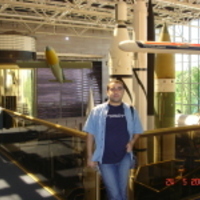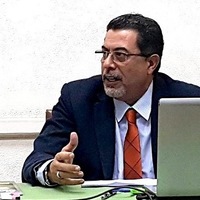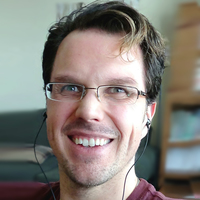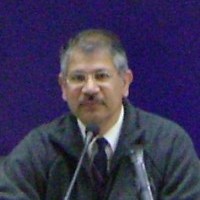
Timothy M Stafford, PhD
Dr. Stafford currently serves as the Director of Grad/Online Academic Affairs and is the Program Director for the MS In Instructional Design and Technology Program at St. Thomas University in Miami, Florida, where he also serves as a Dissertation Chair and Online Associate Professor. He has over 30 years as an educational and instructional leader and innovator, emphasizing leading educational technology and e-learning development teams for blended and asynchronous learning environments, institutional technology rollouts, accreditation, curricula development, and development of professional learning environments and infrastructures.
Dr. Timothy Stafford, Ph.D., is also an award-winning educator, lecturer, and researcher who is a highly sought-after educational, e-learning, and accreditation consultant/analyst and has dozens of clients in many industries. He is the founder and president of RU Institute, a consulting and project management firm for educational and image-building projects, and New Breed Instructional Forensics Group, the research, development, and publishing arm of RU Institute.
In 2010, Dr. Stafford pioneered work on an innovative school design that delivers curricula to children of expats serving all over the world in various military and missions groups and has overseen the design and development of virtually blended schools that currently serve children in 16 countries.
Dr. Stafford has also overseen the development of professional learning systems for national trade associations, including the American Institute for Architects and the National Society of Professional Engineers.
His research interests include epistemology and ubiquitous learning, instructional forensics, digital literacy, learning theory, instructional design for online learning, E-learning systems, Delphi studies and their use in educational metrics, Connectivism, educational technology, and educational leadership.
Dr. Stafford also serves as the senior marketing analyst for Ablaze Media, a full-service agency specializing in marketing and development of non-profit organizations, and is an avid Jazz and Mexican food aficionado.
He currently lives in Central Florida with his wife, Victoria, and children, Joshua and Danae.
Supervisors: Michelle Johnson-Garcia
Phone: (321) 202-8820
Address: PO Box 501
Sorrento, FL. 32776-0501
USA
Dr. Timothy Stafford, Ph.D., is also an award-winning educator, lecturer, and researcher who is a highly sought-after educational, e-learning, and accreditation consultant/analyst and has dozens of clients in many industries. He is the founder and president of RU Institute, a consulting and project management firm for educational and image-building projects, and New Breed Instructional Forensics Group, the research, development, and publishing arm of RU Institute.
In 2010, Dr. Stafford pioneered work on an innovative school design that delivers curricula to children of expats serving all over the world in various military and missions groups and has overseen the design and development of virtually blended schools that currently serve children in 16 countries.
Dr. Stafford has also overseen the development of professional learning systems for national trade associations, including the American Institute for Architects and the National Society of Professional Engineers.
His research interests include epistemology and ubiquitous learning, instructional forensics, digital literacy, learning theory, instructional design for online learning, E-learning systems, Delphi studies and their use in educational metrics, Connectivism, educational technology, and educational leadership.
Dr. Stafford also serves as the senior marketing analyst for Ablaze Media, a full-service agency specializing in marketing and development of non-profit organizations, and is an avid Jazz and Mexican food aficionado.
He currently lives in Central Florida with his wife, Victoria, and children, Joshua and Danae.
Supervisors: Michelle Johnson-Garcia
Phone: (321) 202-8820
Address: PO Box 501
Sorrento, FL. 32776-0501
USA
less
Related Authors
Elizabeth FitzGerald (née Brown)
The Open University
Yuksel Goktas
Ataturk University
George K. # Zarifis
Aristotle University of Thessaloniki
Andreas Umland
National University of "Kyiv-Mohyla Academy"
Ashraf M. Salama
Northumbria University
Jo Tondeur
Vrije Universiteit Brussel
Irene Durante Montiel
UNAM Universidad Nacional Autónoma de México
Marc Champagne
Kwantlen Polytechnic University
David Seamon
Kansas State University
Ramesh Chander Sharma
Ambedkar University Delhi
InterestsView All (30)










Uploads
Case Studies by Timothy M Stafford, PhD
Local civil service provider needed a solution to address the recertification of employees.
The Solution:
VMG implemented a Mobile Learning solution for employees that delivered just in time training and review for various recertification subjects.
The Results:
Employees were empowered to take charge of their own professional development while trainers were able to more efficiently address the needs of the learners on staff.
A Curriculum Developer who was well known for their training of professional educators was looking for an online solution for their training efforts.
The Solution:
VMG designed a a courseroom solution that included their ability to hold courses both synchronously and asynchronously while giving them full control of registration, certification and assessment protocols.
The Results:
VMG made online training possible that could adapt to a multifaceted set of client needs.
Local homeschool provider needed solution to address the creation of e-learning modules as an alternative education for some learners. The courses would also have ideological objectives.
The Solution:
VMG implemented an e-learning solution that allowed for the creation of synchronous and asynchronous modules for both learners and providers.
The Results:
Providers and staff wer able to create modules that met
their educational and ideological standards and they were also trained further in curricular design and other
educational theories.
Papers by Timothy M Stafford, PhD
That reality is a learning theory called heutagogy or the study of self-directed learning.
may not impact education in general and then education as a particular institution.
This view of self helps to define the persons overall worldview and within the context of that worldview there are sets of beliefs about everything within the world to be quite literal – this is
known as a person’s noetic structure, what he/she believes about anything and everything, and it is here that the greatest paradigm shifts of all are occurring. As one looks at any level of future predictions for future generations, especially within the context of education, there is a very real sense of a cultural change of self that cannot be ignored any longer if success is to be achieved in making a difference locally and globally in the lives of people (Marx, 2006).
being in Christian Education. Consider the following not merely as suggestions but as a clarion call to change the way that we think about the business of school.
Local civil service provider needed a solution to address the recertification of employees.
The Solution:
VMG implemented a Mobile Learning solution for employees that delivered just in time training and review for various recertification subjects.
The Results:
Employees were empowered to take charge of their own professional development while trainers were able to more efficiently address the needs of the learners on staff.
A Curriculum Developer who was well known for their training of professional educators was looking for an online solution for their training efforts.
The Solution:
VMG designed a a courseroom solution that included their ability to hold courses both synchronously and asynchronously while giving them full control of registration, certification and assessment protocols.
The Results:
VMG made online training possible that could adapt to a multifaceted set of client needs.
Local homeschool provider needed solution to address the creation of e-learning modules as an alternative education for some learners. The courses would also have ideological objectives.
The Solution:
VMG implemented an e-learning solution that allowed for the creation of synchronous and asynchronous modules for both learners and providers.
The Results:
Providers and staff wer able to create modules that met
their educational and ideological standards and they were also trained further in curricular design and other
educational theories.
That reality is a learning theory called heutagogy or the study of self-directed learning.
may not impact education in general and then education as a particular institution.
This view of self helps to define the persons overall worldview and within the context of that worldview there are sets of beliefs about everything within the world to be quite literal – this is
known as a person’s noetic structure, what he/she believes about anything and everything, and it is here that the greatest paradigm shifts of all are occurring. As one looks at any level of future predictions for future generations, especially within the context of education, there is a very real sense of a cultural change of self that cannot be ignored any longer if success is to be achieved in making a difference locally and globally in the lives of people (Marx, 2006).
being in Christian Education. Consider the following not merely as suggestions but as a clarion call to change the way that we think about the business of school.
Participants in this session will learn how to use blogs and wikis, coupled with Kirkpatrick’s evaluation matrix, to effectively and innovatively evaluate learning. Your evaluation results will benefit from being based on a well-recognized learning-evaluation standard while using familiar, modern, and ubiquitous technology.
In this session you will learn:
About Kirkpatrick’s evaluation matrix and how to use it as a rubric
About the role and effective use of assessment and evaluation
About non-traditional evaluation and assessment types you can use for synthesis
About the benefits of evaluating the learning course room
How to manage objectives as deliverables